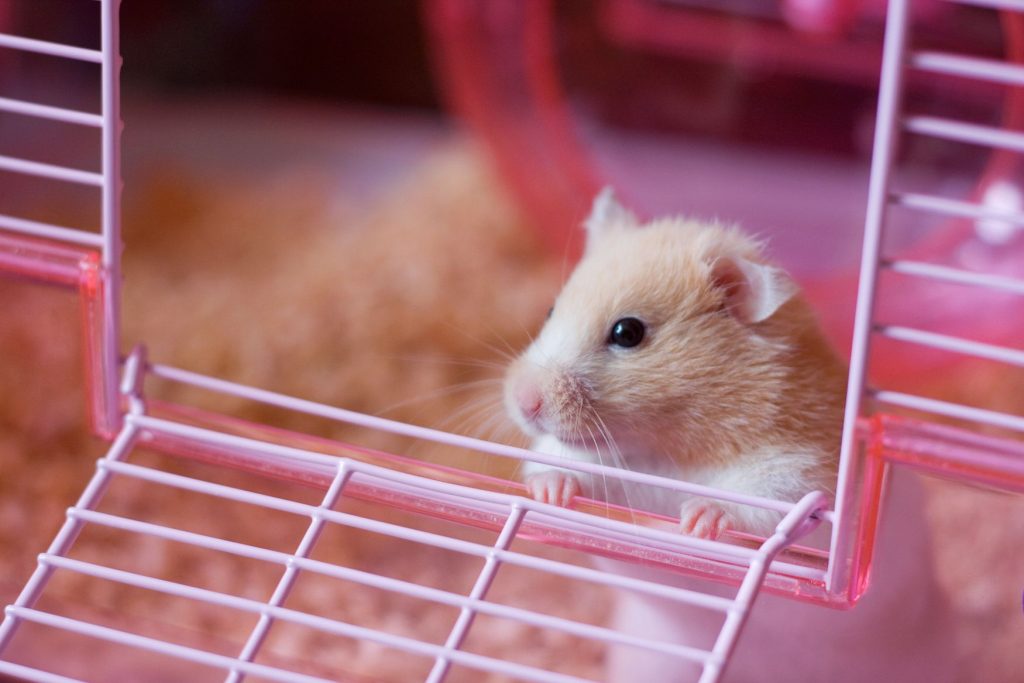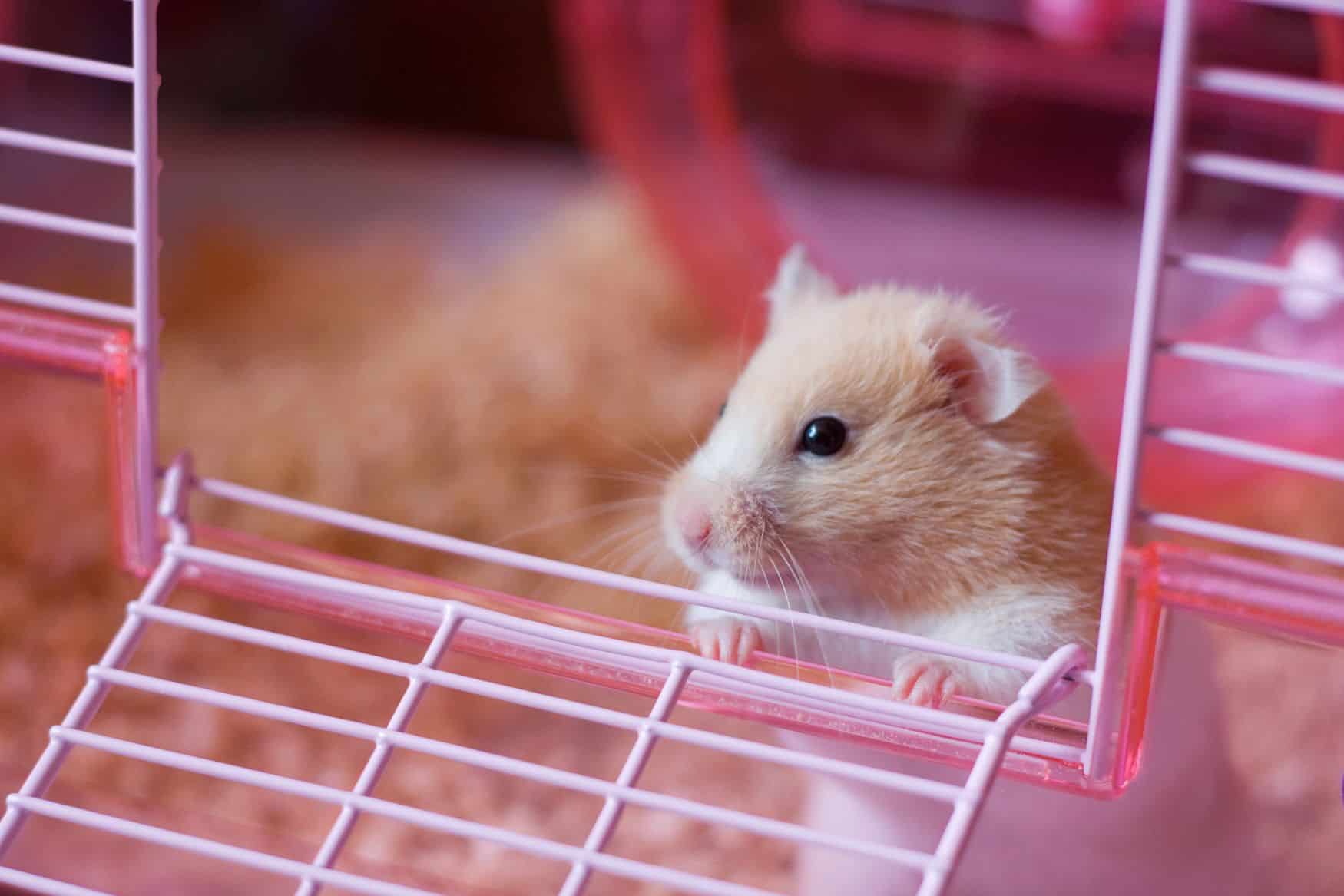Should You Adopt a Hamster?

Those button eyes and sweet faces make hamsters adorable pets, and their small size makes them suitable for small spaces. But there is a lot to learn about hamster behavior and care before deciding to bring this exotic pet into your home.
What Makes a Hamster a Good Pet?
Hamster care is relatively easy. Hamsters need adequate space, clean bedding and cages, special foods, plenty of chew toys, and some handling at least once a day. Because they are active at night (nocturnal), they make great pet companions for night owls!
Are Hamsters Good Pets for Kids?
Hamsters are easily startled and can bite when disturbed or handled improperly. Because they’re nocturnal, they play and make noise at night while your children are sleeping. Older kids, eight years and up, who have learned how to care for a small mammal like a hamster, might enjoy having this curious rodent for a pet. The vets at Dupont Veterinary Clinic encourage you to supervise children when handling exotic pets.
Hamsters Are Hoarders, Loners, and Other Hamster Lifestyle Facts
Hamsters are fascinating creatures with unique and unexpected lifestyle features. They are curious and highly active and prefer the single life. Some lifestyle characteristics of hamsters include:
- Food hoarders—Hamsters come with built-in pockets inside their cheeks to store food for later snacking.
- Loners—Hamsters are often antisocial with others of their kind. They can become aggressive with others, so it’s best to give them private living quarters.
- They can flatten their bodies—When hamsters are at ease, really at ease, they lie flat as a pancake (a fluffy pancake!).
- The need to chew—These exotic’s teeth never stop growing. They require plenty of chew toys and just the right food to trim their teeth.
Diet, Housing, Grooming, and More Hamster Care Tips
Hamsters require less care than some other household pets, but their needs are unique. Understanding care requirements will help keep your pet happy and healthy throughout its life.
Housing
The amount of space needed for your hamster depends on its size. There are numerous breeds. The largest are Syrian hamsters that can grow to 7 inches! We do not recommend glass or wood enclosures for your pet. Talk to our exotic pet expert, Dr. Boxberer, about what your hamster will need for comfortable and safe housing.
Exercise & Toys
Hamster cages should offer multiple levels for climbing. Hamsters like to tunnel, so sturdy tubing that’s safe to chew and large enough for your hamster to navigate is also necessary. Hardwoods (untreated) are terrific options for keeping tooth growth under control. And keep your pet well exercised with a rodent wheel for running.
Diet
A hamster’s dietary needs are specific. We are happy to recommend veterinary-approved hamster feed, and we encourage you to add a little bit of fresh fruit and vegetables to your hamster’s diet. Ask about foods that may be toxic for hamsters, and be sure to keep the cage clean from spoiled foods.
Wellness Care for All Your Pets at Dupont Veterinary Clinic
Please call us at (260) 637-7676 to make a wellness appointment for your household pets. We love exotics at Dupont Veterinary Clinic and are happy to meet your new pets and check up on our existing pet friends.

